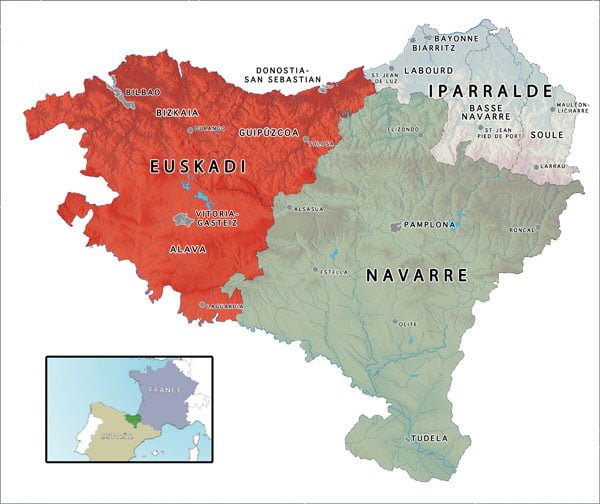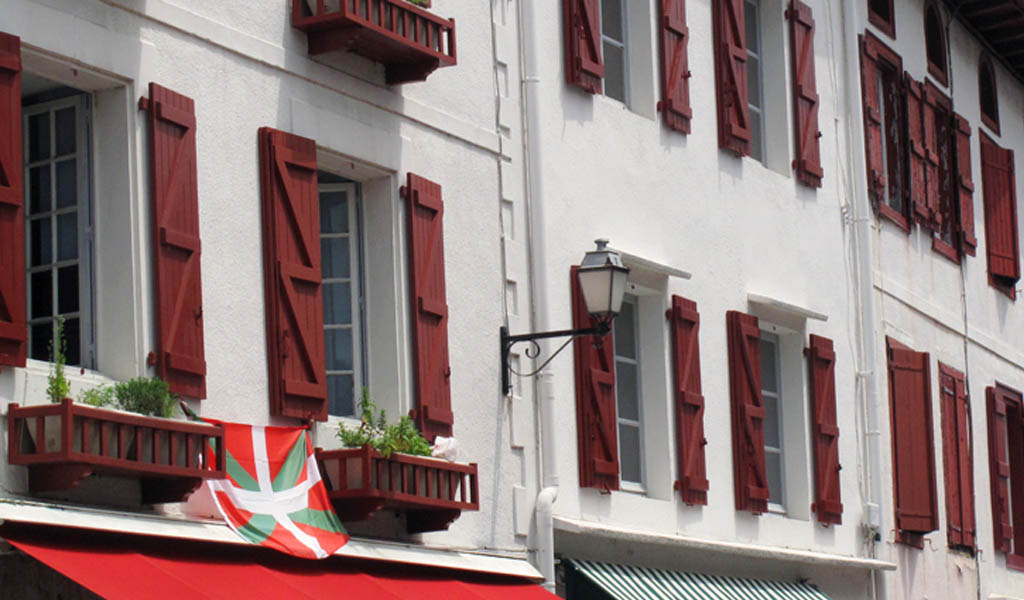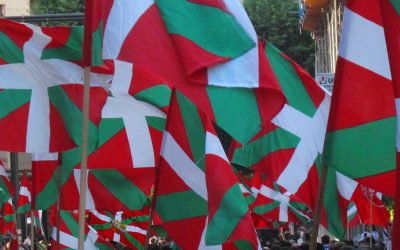Let me introduce you to Basque Regions. We had the opportunity to explore this dense yet very diverse territory over the course of several months for our film project on the Basque Country. You can watch our film Basque Country – A Nation Without Borders and learn more about this fascinating nation.
THREE REGIONS, SEVEN PROVINCES
The Basque Country is generally described as the area encompassing “seven provinces” now divided into three administrative entities: the French Basque Country (Iparralde), the Spanish Basque Country (Euskadi) and the autonomous province of Navarre.
Iparralde means “the north side” in Basque. This is the name commonly used by the Basques to designate the territory of the French Basque Country. Integrated into the department of Pyrenees-Atlantique, the French Basque Country is composed of three provinces, each with their own identity: Labourd, Basse Navarre and Soule. The coast, very popular with tourists, is home to some of the most exclusive resorts in France. Venturing into the valleys and mountains of the interior, one can discover more authentic villages where Basque traditions are alive and well.

Euskadi is the heart of Spanish Basque Country and it is in this region that the presence of Euskara, the Basque language, is most noticeable. Euskadi, also known as the Autonomous Community of the Basque Country, was formed in 1978 by the union of three Basque provinces: Guipúzcoa, Biscaye and Alava. Each preserves a very unique character that is noticeable in its geography, architecture and traditions. The cities of Bilbao and San Sebastián are driven by innovation and are key destinations for foodies.
THE EIGHT BASQUE PROVINCE
The Basques have always traveled the world, whether as sailors, fishermen or explorers. This call of the sea was followed by thousands who left the Basque Country, sometimes by choice but often out of necessity. More recently, thousands of Basques fled the dictatorship of General Franco and most chose to emigrate to South America or the United States. Today, nearly 10 million people worldwide have Basque roots. This scattered population is said to constitute the “eighth Basque province”. The majority of Basque emigrants have assimilated within their new countries and cut ties with the Basque Country. But there are thousands among them who are eager to maintain a strong link to their roots. They define themselves as Basque and perpetuate the language and culture of their homeland while remaining attached to their new cultures. The “Basque – American” community is nearly 60,000 strong, mostly settled in the north-western United States. This scattered Basque population can count on a network of Euskal Etxeak, or “Basque houses”, which are centers where members meet to share various aspects of Basque culture. There are 161 Euskal Etxeak worldwide in 21 countries, 106 of which are in Latin America (Argentina has the most with 76) and the United States. Canada has two Euskal Etxeak, one in Montreal and one in Vancouver.
WATCH THE FILM
THE BASQUE COUNTRY – A NATION WITHOUT BORDERS


